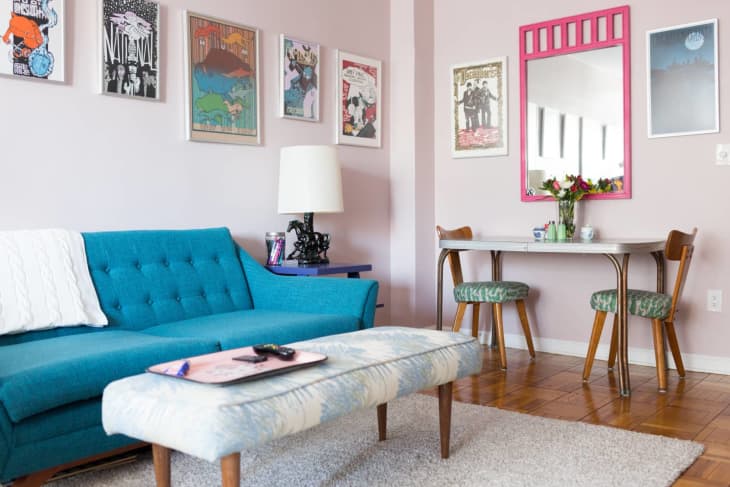How I Finally Got My New Apartment to Smell Like Home

You know that feeling you get when you walk into a space and it just plain smells good? Yeah, me too, and I’ve spent the last six months in my new apartment trying to achieve that singular goal.
There wasn’t anything wrong with how my apartment smelled, but there wasn’t anything really right with it, either. So, I began experimenting with new ways to achieve that immersive, “Oooh, it smells delicious in here” vibe that you can get when you walk into a hotel (like the Westin‘s white tea with wood cedar and vanilla or The Dorchester in London’s signature fig and cassis.)
I began with organic room sprays. The fragrance lift was immediate but didn’t last long. Same with diffusers. The relaxing aromatherapy steam did the trick of adding a concentrated smell uplift in one room, but didn’t create an odor upgrade. I liked certain fragrances, but quickly got tired of them after I smelled them over and over. My husband and teenage son had begun to wonder whether they were witnessing a lab experiment gone wrong. Even though the room began to smell good, it didn’t necessarily smell like my home.
So I decided to do the next best thing: I did a little reporting on the topic to try to key into what I’m looking for in a home scent—and why it has been so hard to find the right one for me.
Turns out the most important thing about finding a scent for your home is to tap into the feelings you’re looking to have when you walk in the door. This is because our sense of smell impacts our mood and emotions more than any of our other five senses, says Sarah Seabolt, a scent consultant at Scent Air, a Charlotte, North Carolina-based company that works with businesses to develop signature scents.
“Your goal should always be to find an ambient and subtle scent that you love and that welcomes you home,” Seabolt says. “If you want your home to feel clean, look for a fragrance that contains citrus. If you want to feel relaxed and calm, look for fragrances with lavender, aloe, and white tea and, if you want your home to feel warm and cozy, look for fragrances with amber and vanilla.”
That sounded simple. I decided that, since I live with guys (my husband and teenage son), I wanted something that made the home feel relaxing and cozy—but not too sweet. I eventually came across a candle with the right percentage of smoky sultry and woody leather.
Here’s the sad part: Unfortunately, they no longer make it, so I fear committing to my home’s “signature scent.” But Seabolt told me not to worry—eventually that smell of home won’t actually smell like anything at all to me.
“When we’re around a particular scent for a long time, especially in our own home, we can experience olfactory fatigue,” Seabolt says. “This does not mean the scent has decreased in strength, but that we have become ‘nose blind’ due to prolonged exposure.”
So, if our noses can get fatigued from a smell, the next best step is not to increase the strength of whatever home fragrance you’re loving.
“This will make it far too strong for guests who are experiencing it for the first time,” she says. “The best way to know if you’re overly scenting your space is by asking a close friend to give you feedback on how your home smells the minute they walk in the door.”
So when my candle runs out, it’s time to switch scents. But for now, excuse me while I light it and finally delight in the smell of my home.
Trying to pick the right scent for your home? Here are the best scented candles.